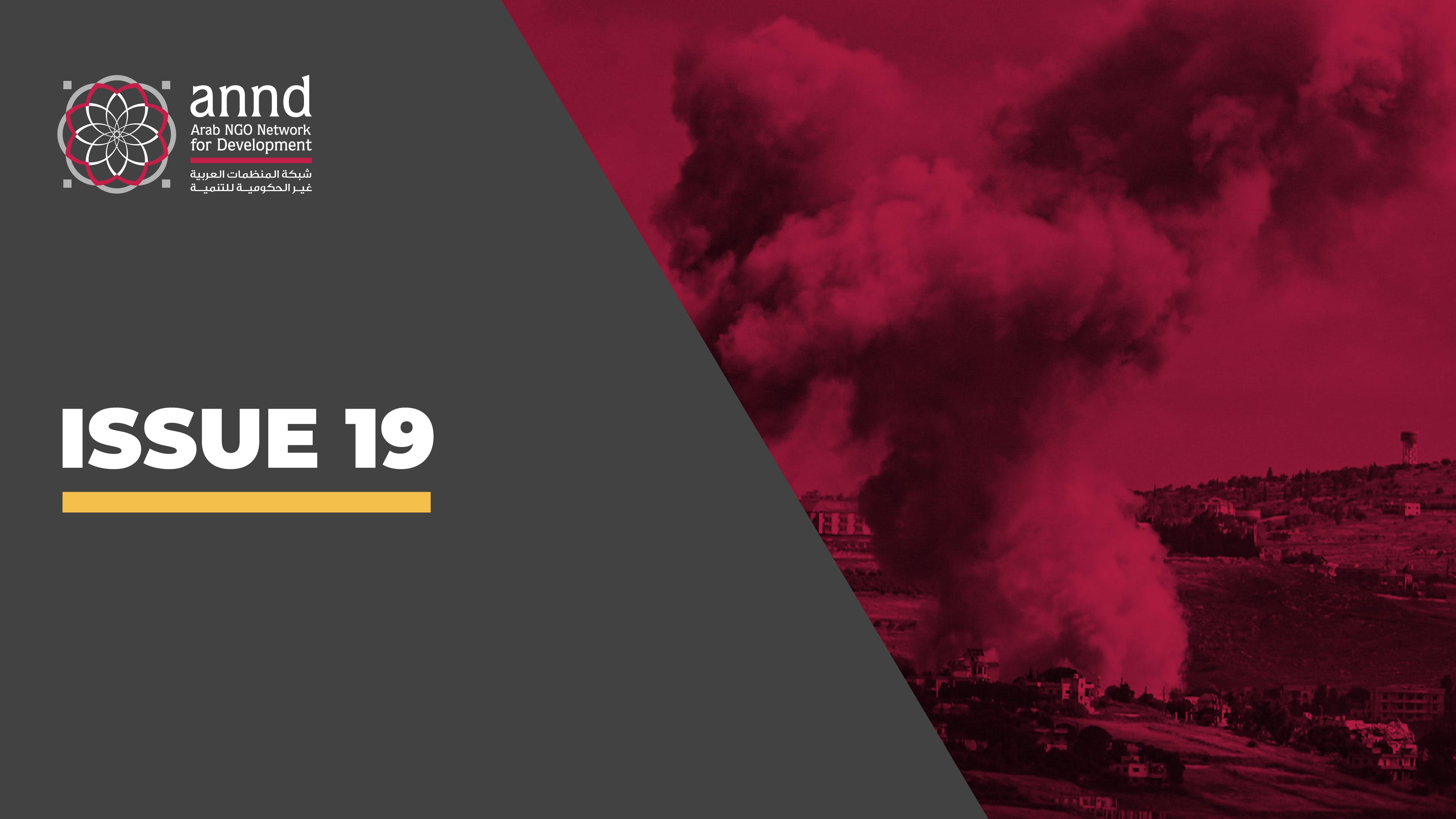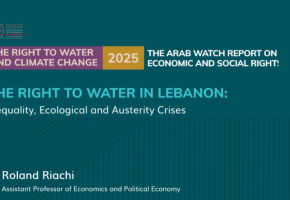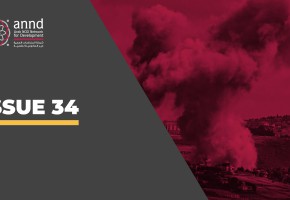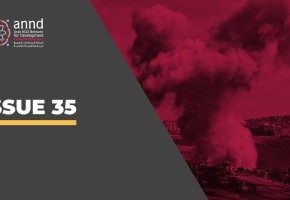A Region on Fire
Issue 19 - October 15, 2024
Lebanon, a Battleground between U.S.-backed Israel and Iran
More than a Quarter of Lebanon under Israeli Evacuation Orders
The United Nations called today, Tuesday, for an "independent and thorough" investigation into the Israeli airstrike that killed 22 people in northern Lebanon on Monday. Jeremy Laurence, spokesperson for the Office of the United Nations High Commissioner for Human Rights (OHCHR), said during a UN press briefing in Geneva: "Given these factors, we have serious concerns regarding international humanitarian law, including the laws of war and the principles of distinction and proportionality."
During the same press conference, the UNHCR Director for the Middle East criticized the evacuation orders in Lebanon, stating: "Now more than 25% of the country is under direct Israeli military evacuation orders. People are responding to these orders, leaving with almost nothing."
Meanwhile, the UN Security Council has not issued any ceasefire resolution, only adopting a statement by consensus that called for respecting the safety and security of UN peacekeeping personnel and buildings in Lebanon, related to the UNIFIL.
The Israeli air force committed a new massacre in the southern town of Qana with two airstrikes that killed and wounded 25 civilians, and the two raids led to massive destruction in the town.
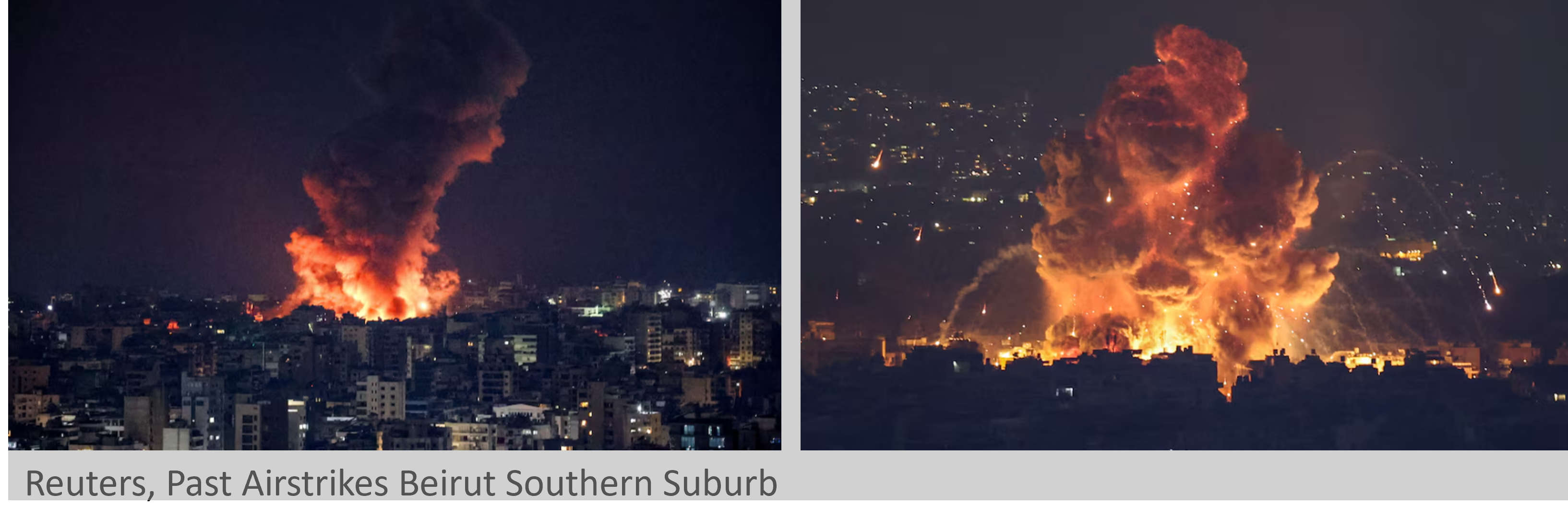
Gaza: Using Hostages as Human Shields
On the 375th day of the war on Gaza, Israel continued its airstrikes on the besieged strip, including intense bombings in the Jabalia area for the 11th consecutive day. Medical sources reported 61 Palestinian deaths since Tuesday morning.
Israeli paramedics confirmed the death of one person and the injury of five others in a shooting near Ashdod, while Israeli media reported the killing of the shooter. Palestinian platforms circulated images allegedly showing the death of the attacker.
A “New York Times” investigation revealed that Israeli soldiers and intelligence personnel have regularly forced Palestinian prisoners to conduct exploration missions that put their lives at risk, to avoid endangering Israeli soldiers on the battlefield. According to the “Times”, the extent and scale of these operations remain unclear, but at least 11 units in five cities across Gaza have used this practice. Palestinian hostages were forced to scout areas where the Israeli army believed Hamas fighters had set up ambushes or planted explosives. This practice has expanded since the war began in October 2023.
International law prohibits the use of civilians or combatants as human shields in conflict, as well as sending hostages to areas where they might face gunfire or forcing civilians into military operations.
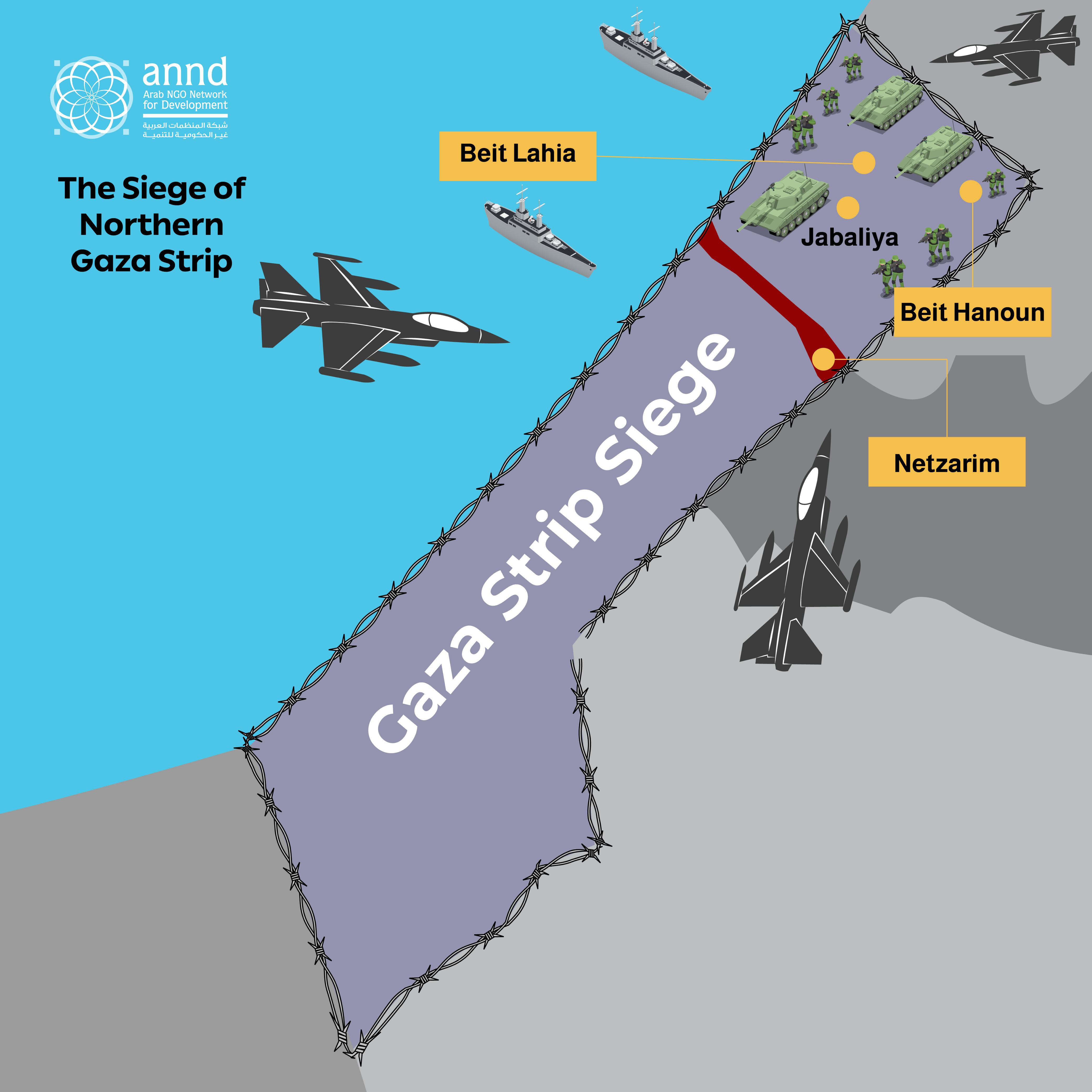
Battlefield Developments in Lebanon: The Most Intense Night in the Bekaa
The Israeli military continued its heavy bombardment of Lebanon, confirming strikes on more than 200 locations over the past 24 hours in the Bekaa Valley and southern Lebanon. The bombings in the Bekaa, described as the most intense, led to Al-Murtada Hospital being out of service due to the severe damage. Civilian and ambulance centers were also targeted.
The Israeli army spokesperson reiterated warnings to southern residents not to return to their villages and olive fields, claiming that Hezbollah was using ambulances to transport fighters and weapons. He warned medical teams against aiding Hezbollah members, as any vehicle transporting armed individuals would be targeted regardless of its type.
“Yedioth Ahronoth” reported that the 228th Israeli military brigade concluded its operations in the Marjayoun area, signaling changes on the ground. The paper also mentioned growing tensions within the Israeli Egoz Unit, with calls for changing decision-making processes among commanders before engaging in cross-border fighting with Hezbollah.
In the evening, Israeli Army Radio announced the mobilization of a fifth military division to participate in ground operations in southern Lebanon.
Hezbollah intensified its use of ballistic missiles and announced the downing of an Israeli Hermes 450 drone. It also targeted Israeli forces near Al-Marj and clashed with an Israeli infantry unit attempting to infiltrate the outskirts of the border town of Rmeish. The clashes were reported to be ongoing on multiple fronts.
According to the Public Health Emergency Operations Center of the Lebanese Ministry of Public Health, the detailed toll of Israeli airstrikes on Lebanon yesterday is as follows:
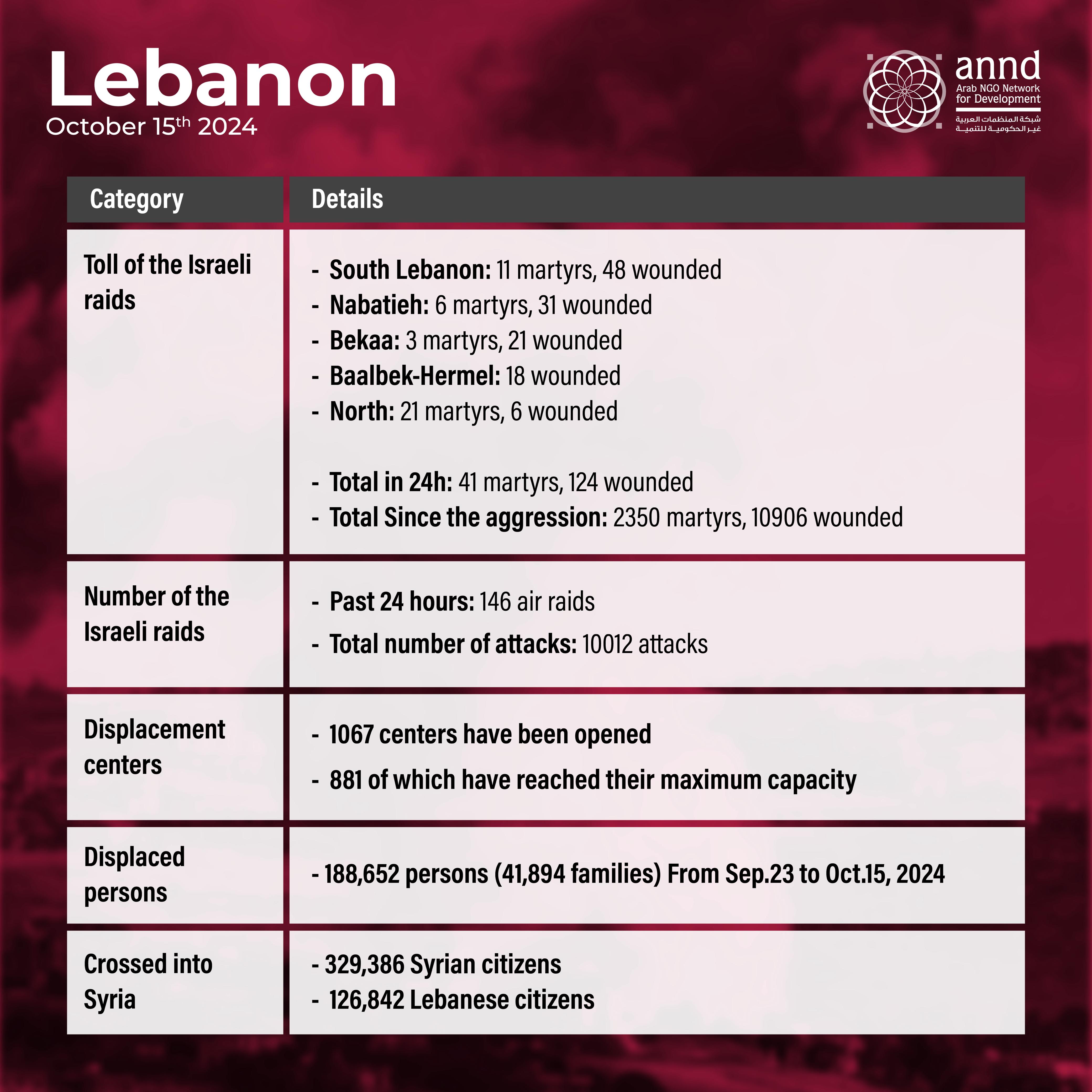
According to the Ministry of Education, 77% of public schools are not providing educational services, either due to their use as collective shelters or because they are located in directly affected areas. Additionally, 40% of government technical and vocational education students, 57% of Lebanese University students, and 32% of students from private higher education institutions come from areas directly impacted by the conflict.
The Lebanese Minister of Health emphasized the need to address Israeli attacks on the health sector, which have killed more than 150 healthcare workers, fully or partially disabled 13 hospitals, and damaged over 130 ambulances.
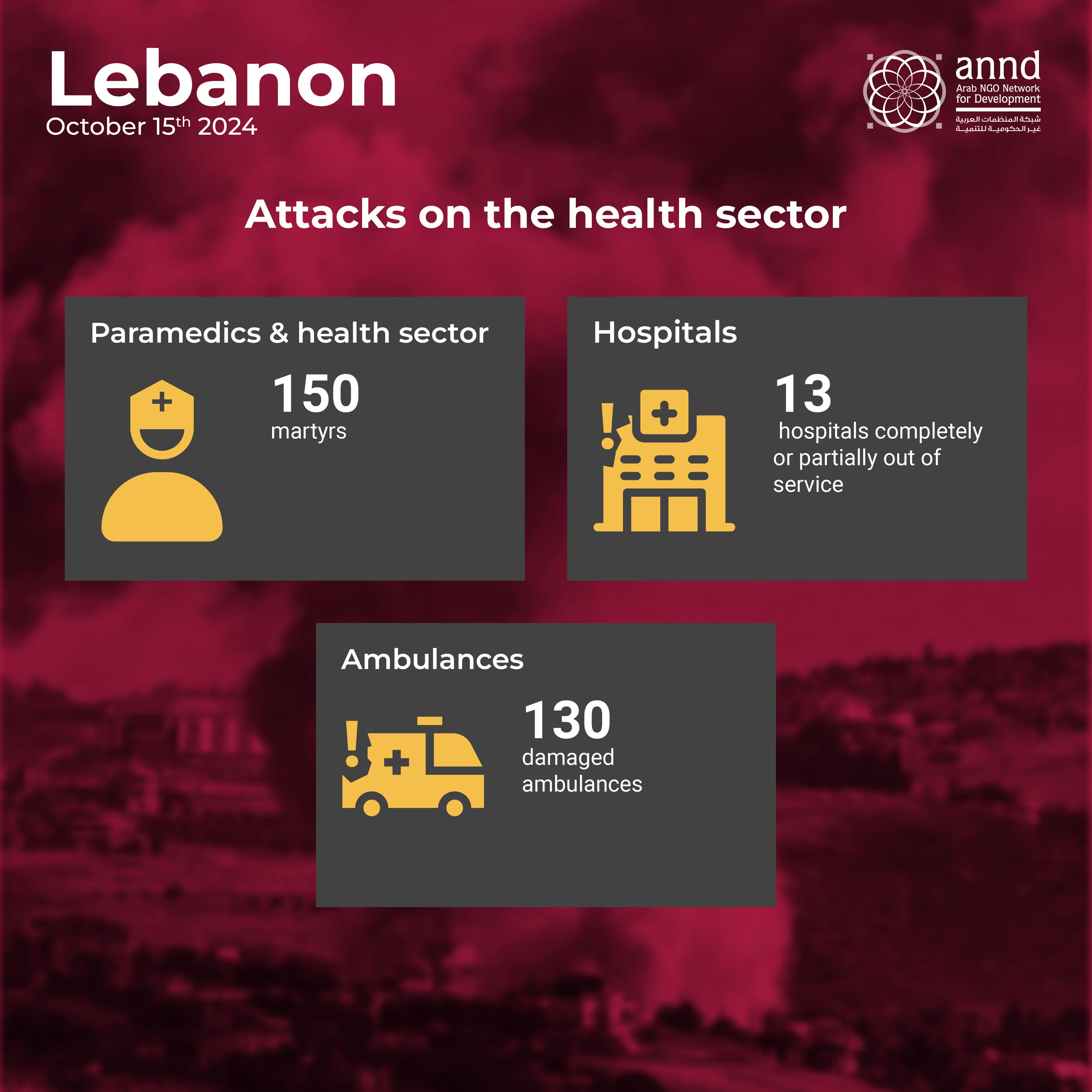
Nicolas Von Arx, the ICRC’s Regional Director for the Near and Middle East, issued an urgent call for the protection of medical personnel, ambulances, hospitals, and primary healthcare centers. He noted that attacks on healthcare facilities are extremely concerning and that the ICRC is currently facing significant difficulties operating in southern Lebanon.
According to the World Health Organization, of the 207 primary care centers in conflict zones across Lebanon, 100 are currently closed due to escalating violence.
Political Positions in Lebanon
Lebanon's Permanent Mission to the United Nations in New York submitted a formal complaint to both UN Secretary-General António Guterres and the UN Security Council, in response to Israel's repeated attacks on the UNIFIL peacekeeping force in southern Lebanon. Lebanon's complaint urged Security Council members to intervene urgently to stop the ongoing Israeli aggression and called for a firm stance against these attacks, which amount to war crimes. Lebanon also called on the international community to act immediately to stop the aggression.
In an interview with Al Jazeera, Prime Minister Najib Mikati said that the Lebanese government had decided to submit a request to the Security Council for a ceasefire. He stressed the need for an immediate ceasefire, the implementation of UN Security Council Resolution 1701, the election of a new president, and the deployment of the Lebanese army to the south. Mikati added that the Lebanese army, in cooperation with UNIFIL, is capable of implementing Resolution 1701, and Lebanon had received U.S. assurances to de-escalate Israeli attacks in Beirut and its southern suburbs. The government is also working to eliminate any pretexts that Israel might use to target Beirut's airport, ports, or land crossings. He emphasized the importance of implementing the Taif Agreement, asserting state sovereignty across Lebanese territory, and ensuring that only legitimate state weapons exist, while downplaying the divisive issue of Security Council Resolution 1559, which calls for the disarmament of militias.
Hezbollah's Deputy Secretary-General Sheikh Naim Qassem said that Lebanon cannot be separated from Palestine, and neither can the region. He noted that the Israeli occupation of Lebanon lasted 22 years and only ended through resistance. "Lebanon is part of Israel’s expansionist project," he said, adding that the region faces the threat of a new Israeli-American Middle East. He insisted that "those who harm Lebanon are not the ones defending people but those killing them." Qassem asserted that Israel will achieve its goals if it is not confronted and emphasized that "the resistance's achievements on the ground in just two weeks have exceeded expectations," stressing that the resistance's mission is to pursue the enemy and carry out operations against it wherever it enters.
The President of the Economic and Social Council stressed that the primary demand is a ceasefire and a return to the state, as major social changes are unfolding that must be addressed.
Lebanese Minister of Information urged foreign media outlets not to embed their journalists with the Israeli army during any operations involving incursions into Lebanon.
Humanitarian Response: Call for Protection of Medical Teams in Lebanon
Countries continued to send various forms of humanitarian aid, as follows:
- Turkey sent about 300 tons of diverse humanitarian aid.
- The second plane of the Saudi relief air bridge to Lebanon took off, carrying 30 tons of aid.
- The Consulate General of Lebanon in Brazil announced the dispatch of the second batch of medical aid, consisting of four tons of various medicines for the war-wounded.
- The fourth Qatari aid plane arrived at Beirut’s Rafic Hariri International Airport, carrying medical supplies.
- The Egyptian government sent an aid and medical relief plane, with more to follow.
- A plane carrying humanitarian aid from the Hashemite Kingdom of Jordan arrived in Lebanon to assist the displaced.
Local associations and initiatives remain the backbone of relief efforts, helping to absorb the shock of massive displacement and provide assistance to affected citizens across
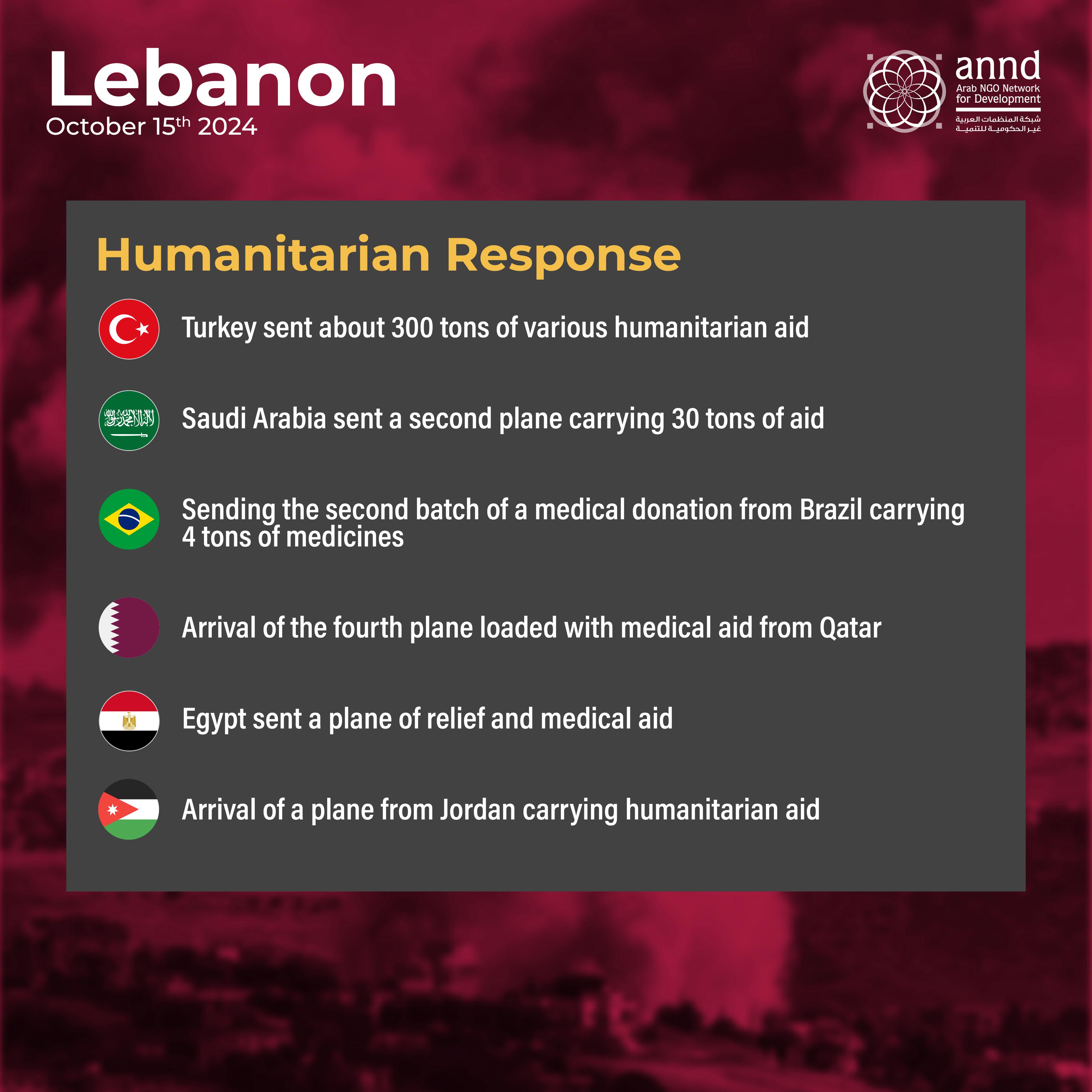
International Positions
The spokesperson for the Iranian government announced Iran's welcome of any peace proposals and its readiness to play a role in improving the situation in Gaza and Lebanon. She also confirmed that Iran did not start the war against any country and has the ability to defend its territory. In turn, the Iranian Revolutionary Guard declared that Iran, Iraq, Syria, Lebanon, and Yemen are working "hand in hand."
The Emir of Qatar called for an end to the aggression against Lebanon and the implementation of international resolutions, including Resolution 1701.
Diplomatic sources revealed that "the latest American message received by Lebanon indicated that Israel intends to enter Lebanon by 3 kilometers deep and will withdraw after cleaning this area. It does not intend to stay there but will seek to accomplish the mission as quickly as possible." The sources added that "Israel is determined to turn this entire area into a scorched zone and does not want anything to stop or obstruct its work."
“Axios” reported that Washington has asked Israel to take steps within 30 days to improve the humanitarian situation in Gaza.
International positions regarding the attack on UNIFIL forces continued:
- The United Nations Security Council expressed its concern in a statement and urged all 15 member states to respect the safety and security of UNIFIL personnel and their premises. The council called for the full implementation of Resolution 1701 regarding Lebanon.
- The UN Under-Secretary-General for Peace Operations, Jean-Pierre Lacroix, confirmed that the United Nations Interim Force in Lebanon (UNIFIL) will remain in all its current positions, despite the Israeli army's calls to evacuate positions near the "Blue Line" separating Lebanon and Israel.
- The Italian Prime Minister demanded guarantees for the safety of Italian soldiers in the Middle East and considered the "Israeli" forces' position unjustified, stressing that defending Israel's right to live in peace must be within the framework of commitment to international humanitarian law.
- In response to statements by French President Emmanuel Macron, Netanyahu stated that the "victory" in the 1948 war was what led to the establishment of the State of Israel, not a decision from the United Nations.
